Lobster bisque for the blues
A father and daughter’s journey through sadness and seafood.
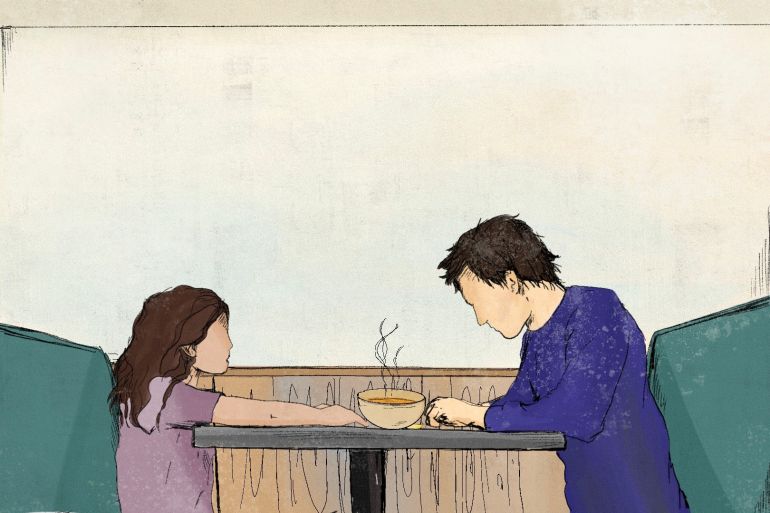
On my first day at my new elementary school, I peed myself on the sidewalk waiting for my dad to pick me up.
It wasn’t unusual for him to be late. Tardiness was the norm in our family. But as I waited for him outside of school, the thought of going back inside, passing by all those unfamiliar faces, to use the bathroom seemed more daunting to my five-year-old mind than simply trying to hold in the pee.
Keep reading
list of 4 itemsIn India’s richest state, exam scams kill escape from farm crisis
Displaced 12-year-old boy becomes Gaza’s youngest medic
Why are so many young Americans suffering from mental distress?
We’d recently moved to Fort Lauderdale from Eustis, Florida, and this new school was much larger than my last. It was an intimidating place for a shy mixed-race girl who worried that she stood out too much.
By the time dad arrived in his pale blue Cadillac, blasting You’ve Lost That Loving Feeling, the warm liquid was already trickling down my legs.
“It’s just a little pee,” he joked, his smile warm and playful, as he set some newspapers down on the back seat and I stumbled, sobbing, onto them.
Then he drove me to the nearest Long John Silver’s – the fast food chain that seemed to have a branch on every corner in Florida – to drown my sorrows in a large tub of breaded shrimp and fries.
There, in the rounded diner-style booths, began something of a father-daughter ritual: whenever I was feeling sad, my dad would take me to a seafood restaurant, where I would savour the food and his full attention without my brothers there to compete with me for it.
As a history major, Dad always had a historical fact up his sleeve, or an anecdote from the past he’d relay as though it were a fairytale. Even now, I can vividly recall his child-friendly retelling of the Iliad which made it seem, to me, like some kind of movie. As a kindergartner, I fell in love with his storytelling, and the way his eyes would light up when sharing a historical fact.
My father’s ghosts
But it wasn’t just the storytelling and fact-sharing that made these outings with Dad so special. It was that he understood me. He understood the sadness I felt then – the sadness of not feeling like I belonged. In fact, he knew sadness well. His second wife had died in a car accident, leaving him to care for their two-and-a-half-year-old son – my older half-brother – alone.
He had met her in El Salvador, where he’d been a Peace Corps volunteer during that country’s civil war. He suffered from PTSD and depression as a result of the things he had seen there and when he’d speak of them, it was as though he were in a trance. “There were bodies strewn all over Central Park,” he’d say in a low voice with eyes glazed over, talking as if I were miles away instead of right there in front of him. “You had to step over them as you crossed the sidewalk.”
During long road trips or quick rides to the store, he’d confide in me as though we were peers – or I the adult and he the child, telling me about how he had hidden under his bed “when the bullets started blasting”. But it wasn’t just me he told these things to — my two brothers also bore the heavy weight of his daily confessions.
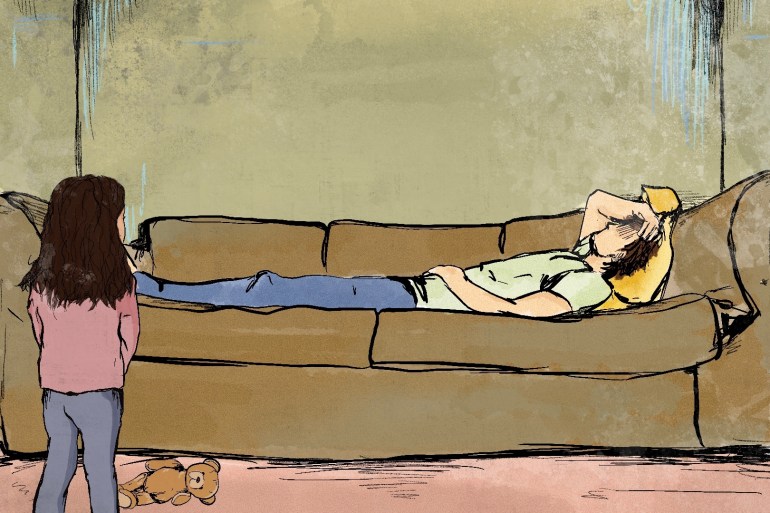
With the sound of rapid-fire forever ingrained in his memory, fireworks were a particular trigger for his PTSD — causing him to shudder and sometimes even duck for safety. When, during the holidays, we visited my mom’s home in Honduras, where fireworks were the norm, he’d stay inside with a migraine, unable to sleep. I never understood how something so beautiful and exciting could leave him so afraid.
Sometimes he’d lie on the sofa for days on end, unable to lift himself, even to bathe. By this time, I understood that there were two versions of my father — the boisterous, outgoing one, and the isolated, depressive one. I loved both equally.
I came to accept sadness – his and my own – as some unwelcome phantom, the kind you learn to live with because you know they’ll never go away.
‘Please come home, Daddy’
My mother wasn’t as understanding. With three kids to tend to, she’d rage at these depressive cycles, demanding a husband and father she could rely upon.
She viewed sadness the way her own mother, who had raised her on a small farm, had taught her to: as something over which the will could triumph. Something to chug down with a warm cup of café con leche before getting back to work.
“Nobody has the time to be sad when they’re busy,” she’d say before asking me to wipe down the counter or fold the laundry. She’d walk briskly from one corner of the house to the other, always looking for the next chore, her eyes bright as she tried to convince me that being busy was better than therapy.
Their understanding of sadness wasn’t the only thing over which Mom and Dad disagreed.
My parents fought often and loudly. Sometimes their fights – accompanied by screaming and door slamming – would go on long into the night.
I remember one friend at age six, confused by the constant tension and chaos that seemed to consume our home, asking: “Why do your parents fight so much?” I didn’t have an answer.
But when they would get particularly bad, a neighbourhood mom would let me and my older half-brother hide out at her house until it was safe to return.
We moved often, however, from one shoddy apartment or small connected house to another, and there weren’t always kindly neighbours to take us in. Sometimes I’d find my older brother hiding up a tree, and I’d have to alert him when it was safe to come back down. Sometimes it was me hiding under a bed, covering my ears.
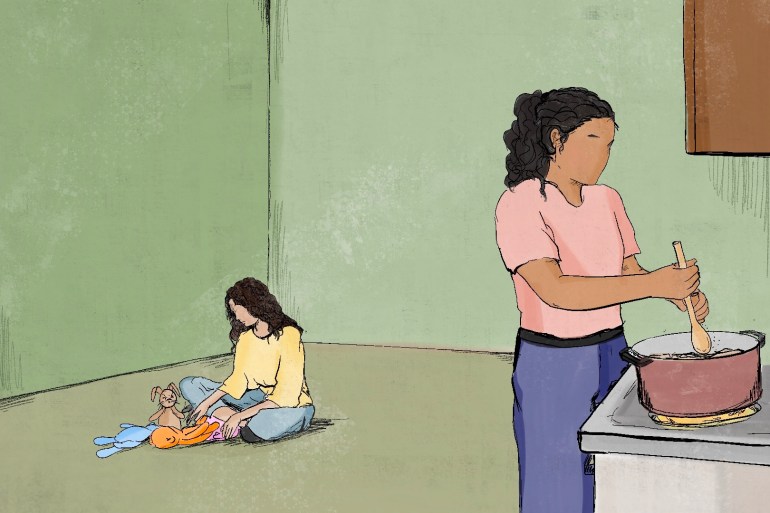
Not long after we arrived in Fort Lauderdale, we left, abandoning sunny skies for the cooler suburbs of Georgia. Marietta’s long winter months and bare trees were a far cry from the warm Florida sand I was used to burying my toes in.
And while, by this time, I no longer peed my pants, the blues showed up for me in other, more insidious ways. I stopped asking to go out, preferring the company of my toys to people outside of my family.
But our change of home wasn’t the only reason I was sad. Throughout my childhood, my father would disappear. After an argument with Mom, he’d get into his white minivan and spin out of sight – leaving us, and his beloved blue Cadillac, behind. Sometimes he’d be gone for a day, other times it would be months before he returned.
It was like he oscillated between wanting to be a parent and not. Often when he was gone, my mother would ask me to call his voicemail, to plead with him to come home. My throat would tighten and a small “please come home, Daddy” would squeak out of me.
I never knew if it would be the last time I saw him. Though I knew my mother loved me, I realised I’d never have someone else read my amateur poetry and tell me I could achieve great things. That I’d never have someone listen to me say I was sad and take me out for fried fish and shrimp. Despite my dad’s regular disappearances, it was always him I turned to for comfort and understanding whenever I struggled with being the new girl at school yet again.
An elixir to mend a broken heart
Later, as I grew into a teenager and our family teetered into the middle class, Dad and I swapped our greasy menu for restaurants where you placed fancy cloth napkins on your lap and made sure to keep your elbows off the table.
Lobster tails were still too expensive, so we’d order two bowls of the cheapest item on the menu: lobster bisque. “I grew up on lobster bisque,” Dad would tell me, offering stories from his childhood in New England, where “if you fell asleep outside during the winter, you wouldn’t wake up”.
The first time I savoured the smooth, creamy broth, the sadness of not belonging seemed to dissolve down my throat. Lobster bisque became an elixir that could mend a broken heart. Even when I wasn’t sure why it was broken.
I didn’t know it at the time, but these trips every few months were as much a balm for Dad as they were for me. We didn’t get dressed up, we’d just drive to the nearest seafood joint – the Beatles, Bob Dylan or Joan Baez playing on a cassette in the car.
“You wouldn’t believe me. Shrimp in El Salvador are the size of my fist,” Dad would tell me excitedly as I sat enraptured by the stories of his travels as a young man unhindered by parental responsibilities. In my eyes, he could do no wrong; he was brave and defiant and had lived a life worth telling stories about. But even in those moments when he was present, he was also absent – always.
Yet, no matter where he found himself, seafood always meant home. His fascination came from nostalgia; in longing for his hometown of Bangor, Maine where lobster tails were regularly fished from the sea and prepared to buttery perfection. It was a longing he passed on to me, and with it, a hope that the world was much larger and more encompassing than my own sadness.
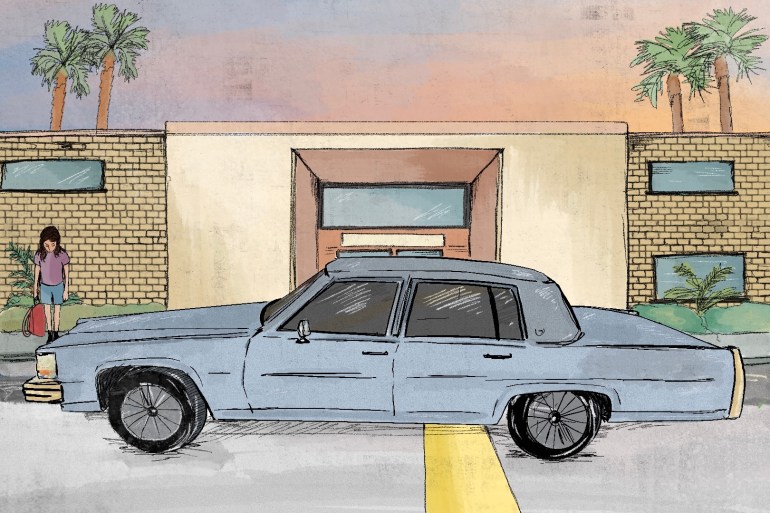
The scattered ashes of our relationship
I’ve returned to our ritual many times throughout my life. During cold winter months, when moving between countries, getting over a toxic relationship, or in the grips of social anxiety, I could rely on the savoury broth for comfort — its creamy and delicate texture forever reminding me that this too shall pass. On my babymoon in 2015 and in full-blown cravings, it was lobster bisque I yearned for.
But over the years, Dad and I have grown more distant. Painful family history and political differences have caused irreparable ruptures in our relationship.
When my older half-brother died by suicide in 2005, we became a shattered family. Dad’s physical and emotional absence became more pronounced than before. Suddenly, his stories of travelling the world seemed more consolation than intimacy. To speak of grief was to be cast away. Instead, we fought over romantic and family dramas; over my budding independence.
I began following a pattern of bad choices. I fell into workaholism, throwing myself into my studies and into a string of bad relationships with the hope that my grief wouldn’t catch up to me. I became impulsive. I’d storm out of rooms in the heat of an argument; fling passive-aggressive remarks Dad’s way rather than ask for what I needed; my own depression and PTSD always threatening to suffocate me.
Every once in a while, we’d still go to a seafood restaurant and I’d be able to make out the glimmer of who we had been. With my role as his keeper once again in place, he’d share his daily insecurities, complaints and frustrations. And I, forever the child-parent, would listen intently.
But more often than not, Dad and I fought incessantly. When would it be OK to talk about my brother? I begged. But bringing him into the conversation only meant that I’d be quickly shut down. Dad’s voice would become aggressive and hostile. “I can’t talk about this,” he’d say at each turn, or worse “Your brother’s gone, there’s no point in bringing up the past.” I longed to examine our past as a family, to grieve together in the face of our pain, at least once.
After Dad remarried, the ashes of our relationship seemed to scatter further apart.
Speaking the unspeakable
When I think about the thread that unspooled our bond, I can trace it back to Dad’s many disappearances and reappearances; but mostly his unwillingness to be held accountable for them.
Following my son’s birth in 2016, rather than receive support as I struggled through a cloud of postpartum depression, I received updates about the latest dramas in his life or political conspiracy theories.
Our values no longer align, and rather than bringing us closer, the pandemic has created a deeper divide — unmooring us from one another. I no longer have the energy or emotional bandwidth to be his sole audience. In my thirties, I’ve learned that being my father’s keeper, despite his charisma and larger-than-life self, is a lonely endeavour.
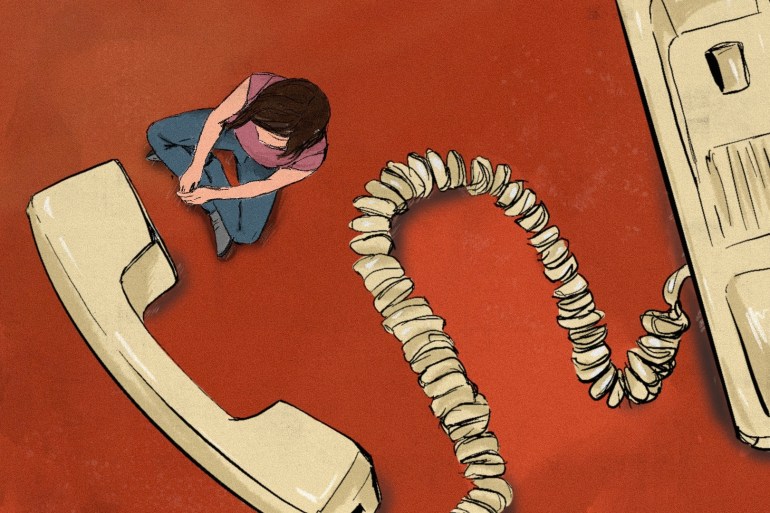
Conjuring my brother’s memory still only leads to more dead ends. Before his death, my dad and brother’s relationship had been more than hostile; they’d barely been on speaking terms; butting heads over the years on nearly everything. “I don’t want to be called by his same name,” my brother, who’d been named after our dad, repeatedly told me. “Just call me Jay from now on,” he proclaimed in his teens — the first letter of his middle name, Joseph.
I can see now that deflecting his loss is — and always has been — a way for my dad to guard himself against soul-crushing guilt.
But the older I get, the less eager I am to give his silence a louder voice than my own. Instead, I write essays about my brother and hang his portrait on my office wall — a photo of him sporting a mohawk, with arms crossed and a warm mischievous grin. Always a reminder to choose bravery over unease.
It’s been three years since this pandemic started and even more than that since I last saw my dad. Each season that passes still remains a painful reminder of our lost time together.
Watching the world around me engulfed in unrelenting grief triggers my PTSD. Millions have been lost, and even more are left to carry what remains.
We must all get through this minute, this day, the best way we can. How then, can I hold my dad’s pain against him, when his life has been a series of losses and regrets? On my better days, I can still imagine the young man he used to be; bold and unafraid of new experiences, opting for the unknown over his own comfort.
And I can clearly see, too, how shielding himself from pain has always been his greatest disappearing act.
Now, more than ever, I realise that healing is only made possible by speaking the unspeakable; in giving new light to a dark time.
Today, as the chasm between Dad and I grows wider, I find myself homesick for simpler days when it was easy to just grab our keys and head to the nearest restaurant without the fear of a deadly virus or the pull of weighty baggage anchoring us down. And so, instead of searching for lobster bisque, I find comfort in our memories together; in the times Dad told me fantastical stories about his travels and his hopes for a brighter future.
It was enough to keep us both safe from the blues back then, and it remains a steady harbour for me now, too.
I like to think that the bonds we’ve shared with loved ones are never broken, only reshaped and redefined; giving us solace even as we can’t find reconciliation. Perhaps, for me, seafood will always be tied to hope and nostalgia the way it was for my dad.
While I still mourn the closeness we once shared, our connection during all of those trips isn’t lost. Even as I type these words, my five-year-old son knocks on my door, asking what kind of story I’m writing.
“One about lobster and sadness,” I say.
“But mostly about love.”